
Aleksandra Liput
Heartworm
Project Info
- 💙 SIC! BWA Wroclaw
- 💚 Mika Drozdowska
- 🖤 Aleksandra Liput
- 💜 BWA Wrocław Galleries Of Contemporary Art
- 💛 Alicja Kielan
Share on
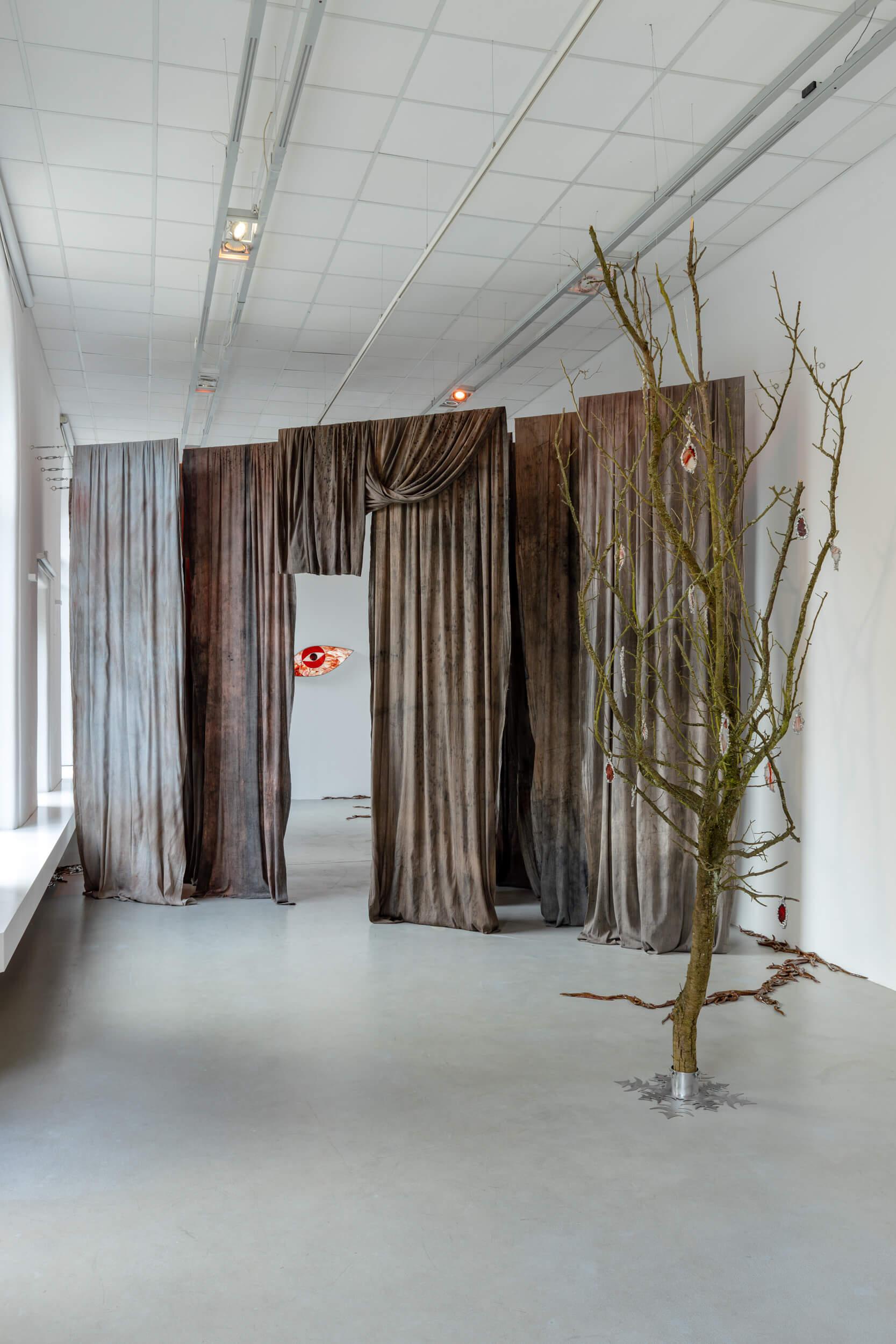
exhibition view
Advertisement
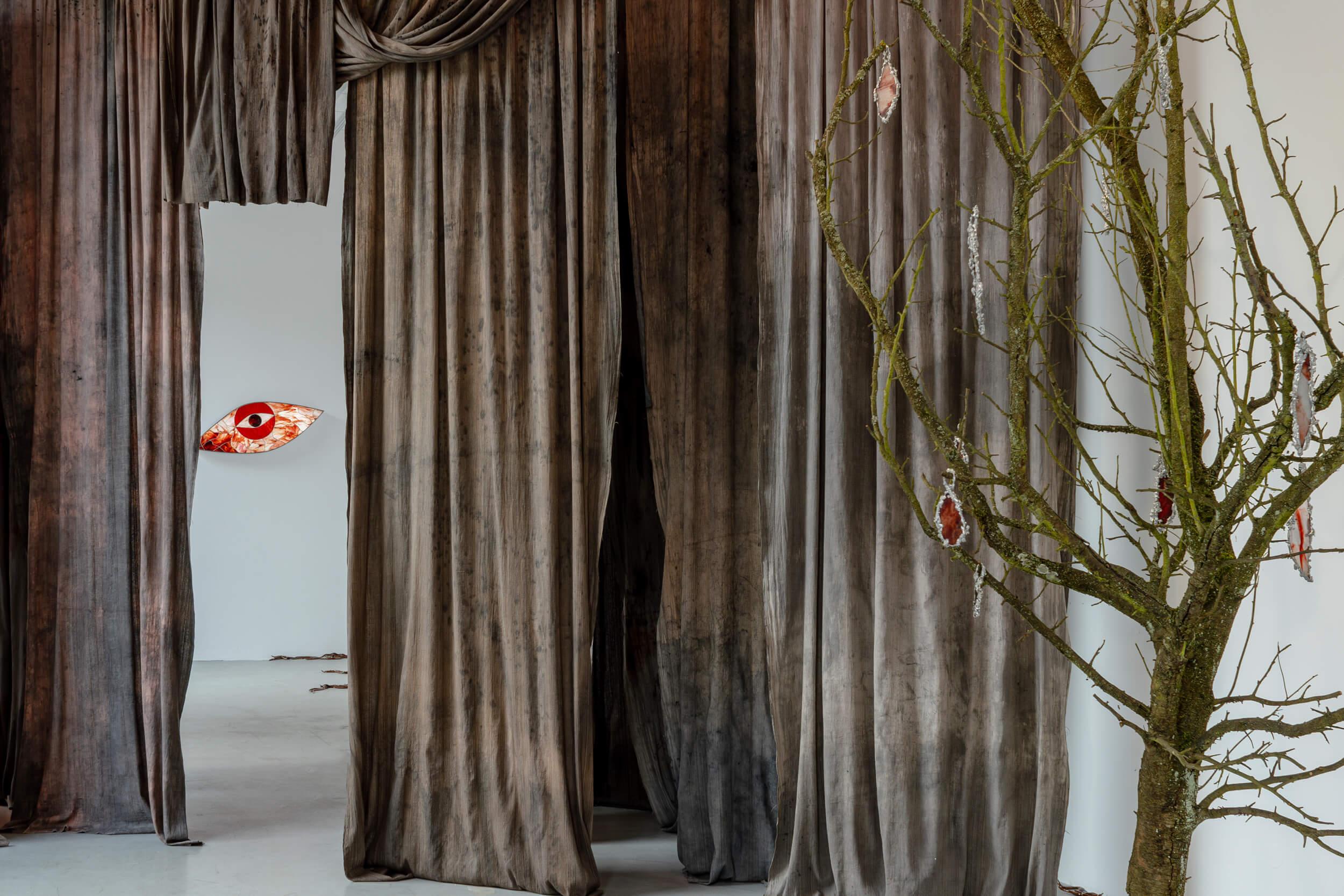
exhibition view
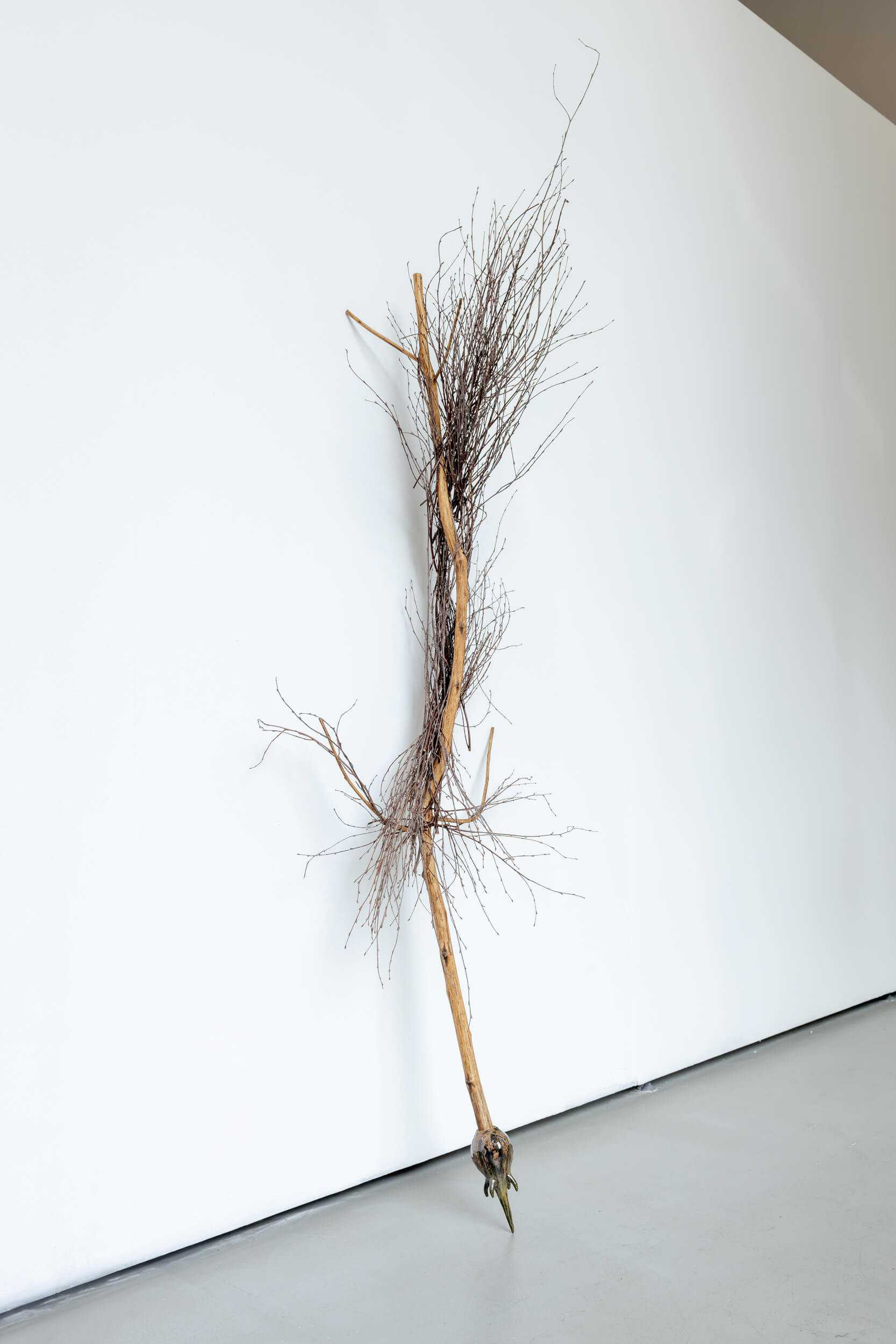
Expulsion / birch twigs, tin, 2024
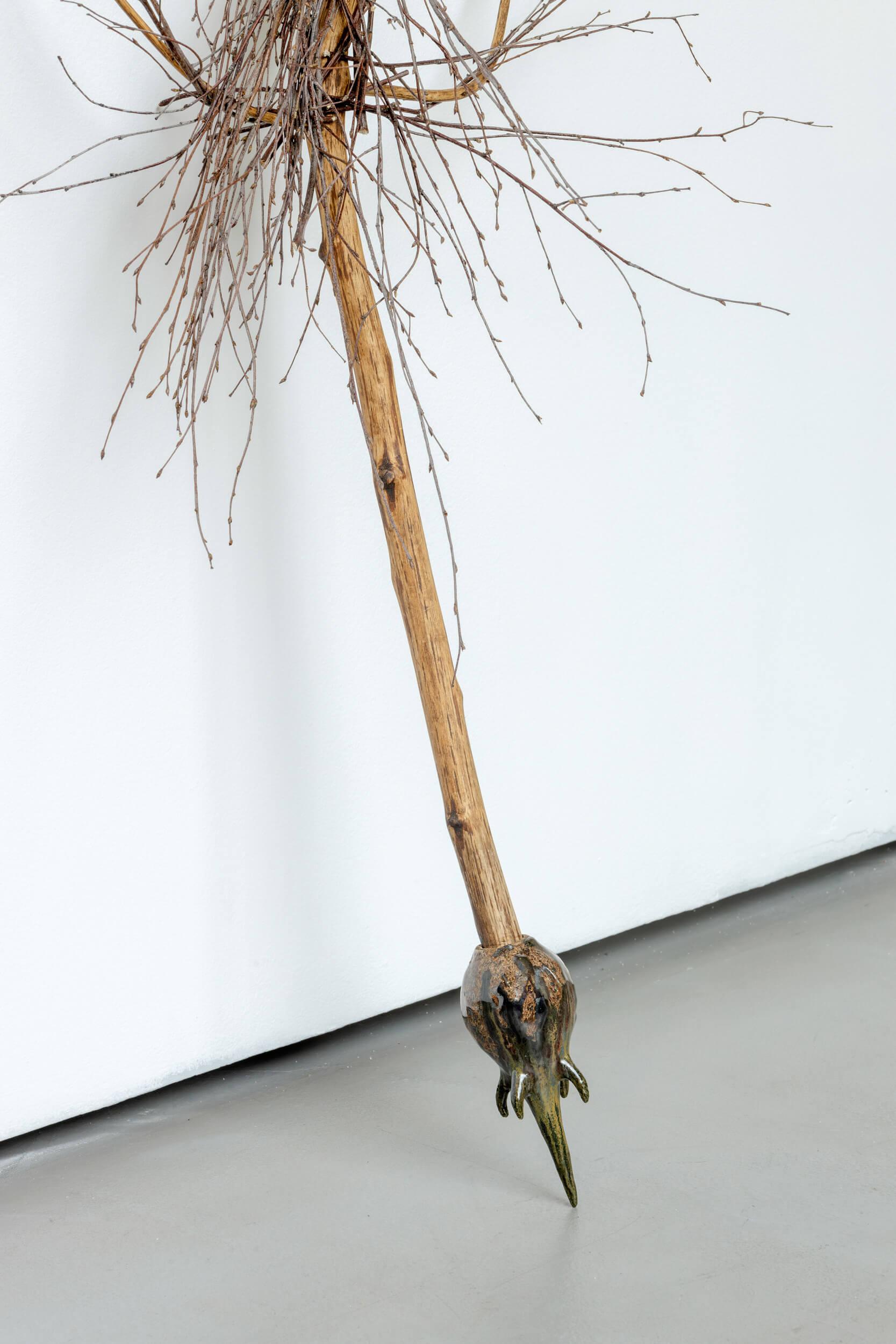
Expulsion / birch, twigs, tin, 2024
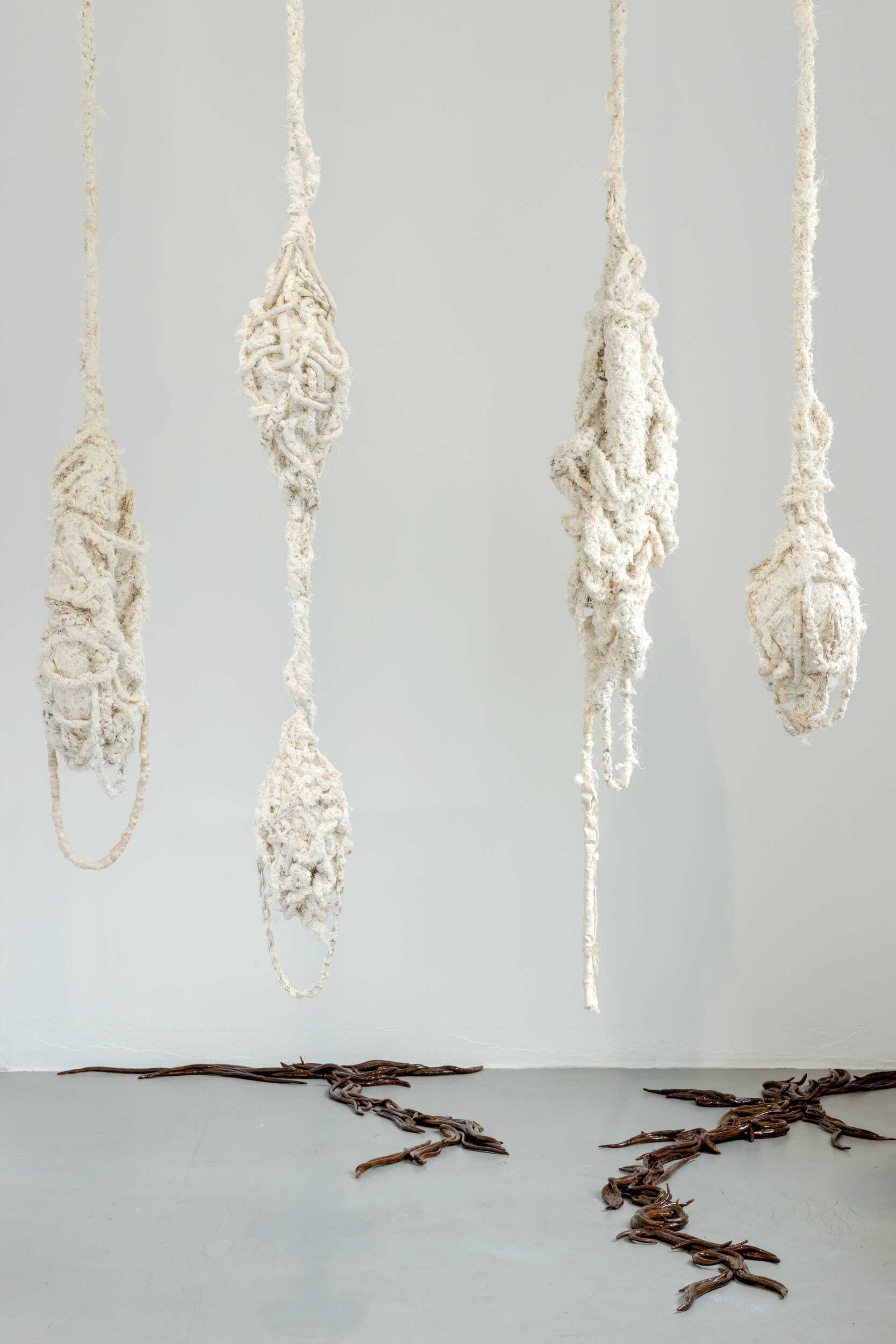
exhibition view
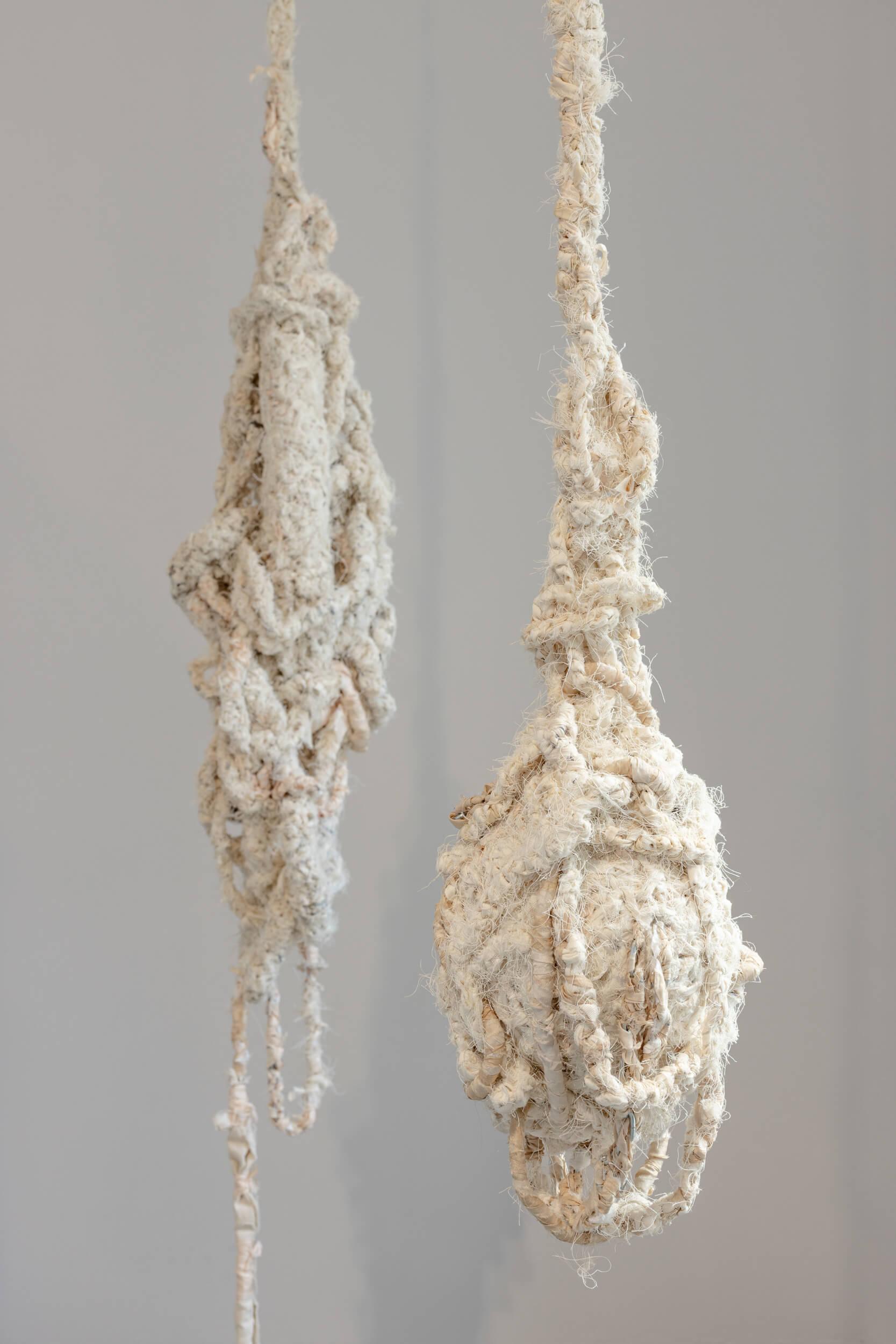
Polish Plaits / textiles (cotton, silk, twine), metal chain, 2022
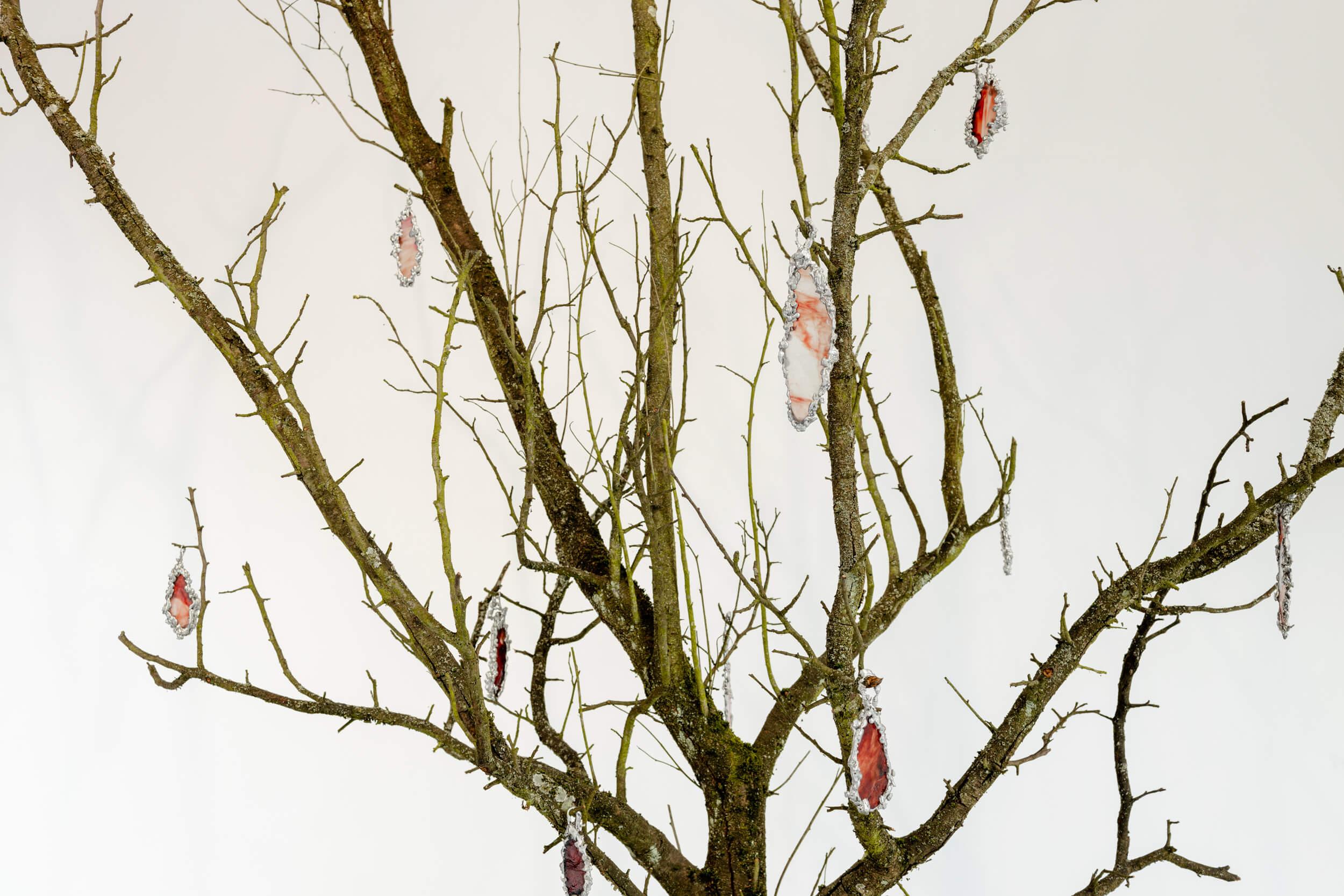
The Poisoned Tree / audio installation, tree, glass and tin, 2024
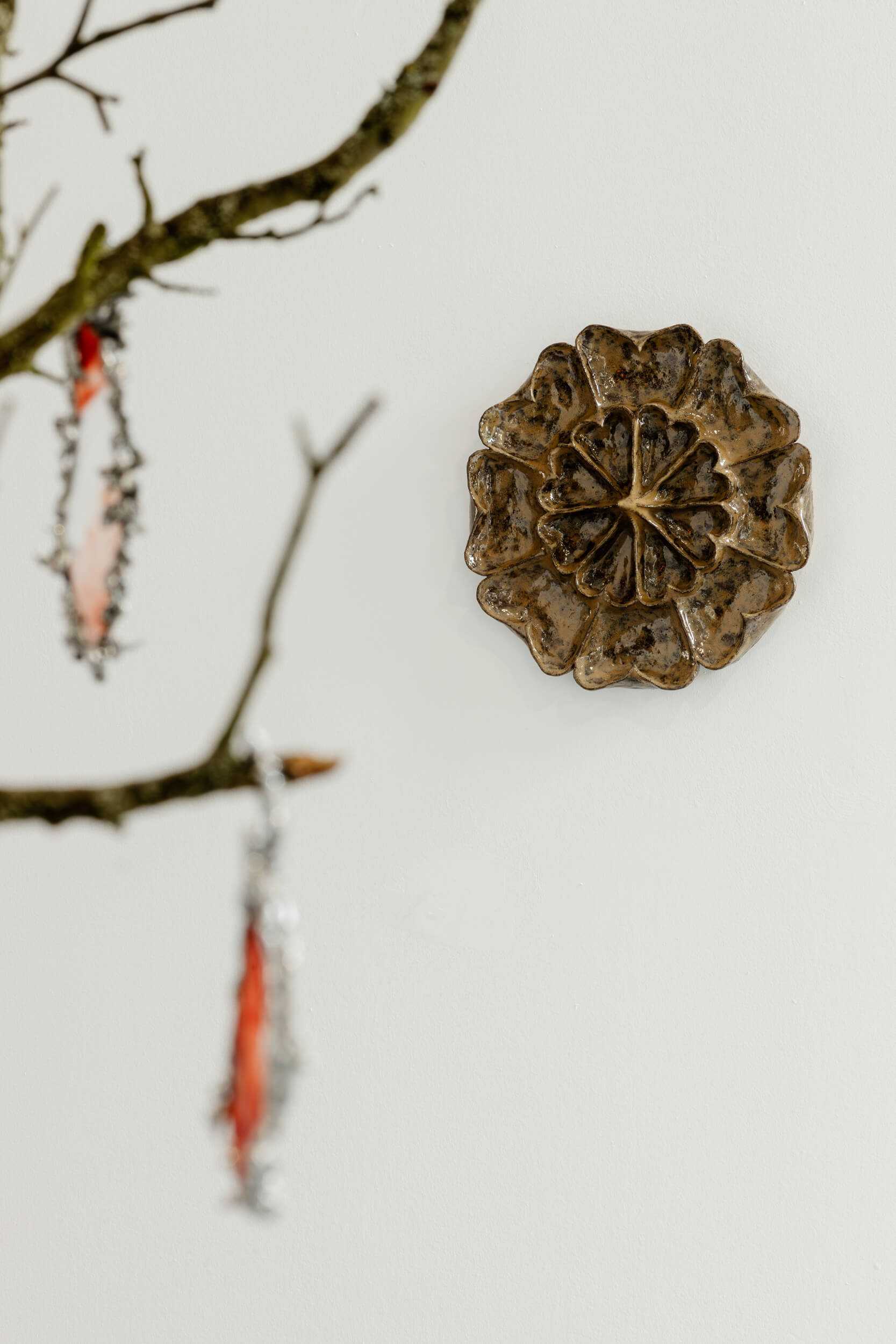
exhibition view
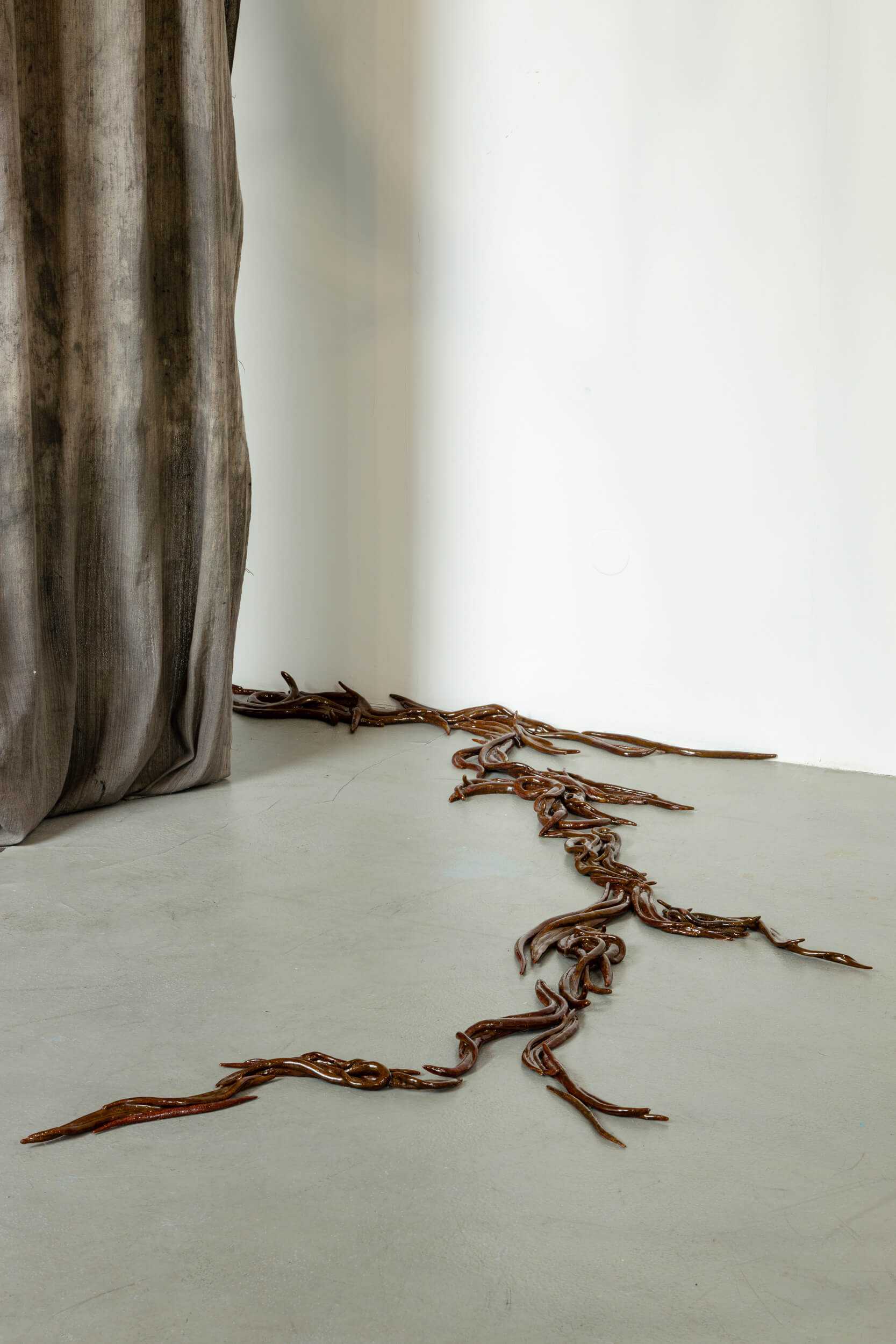
Heartworm / ceramics, 2023/2024
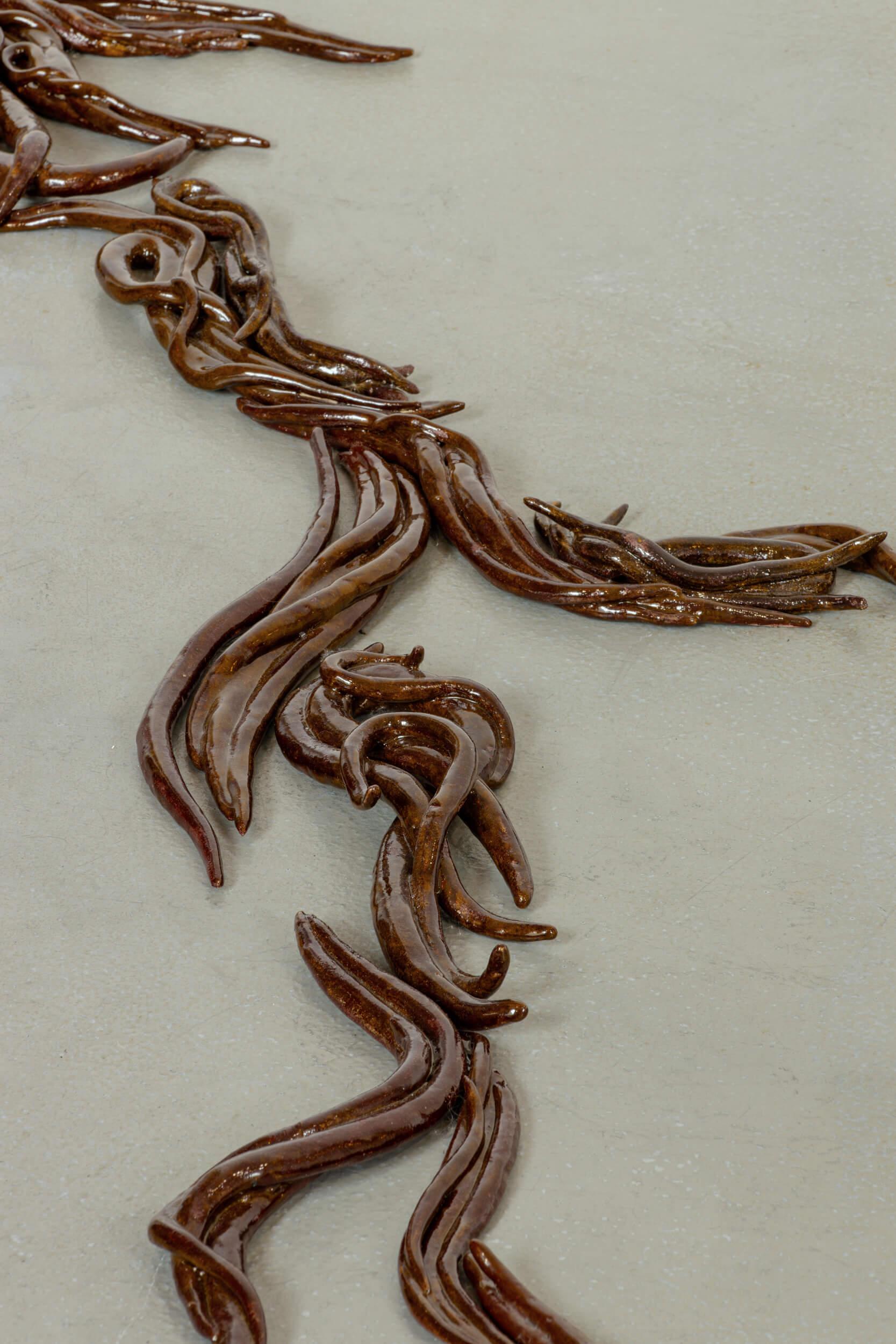
Heartworm / ceramics, 2023/2024
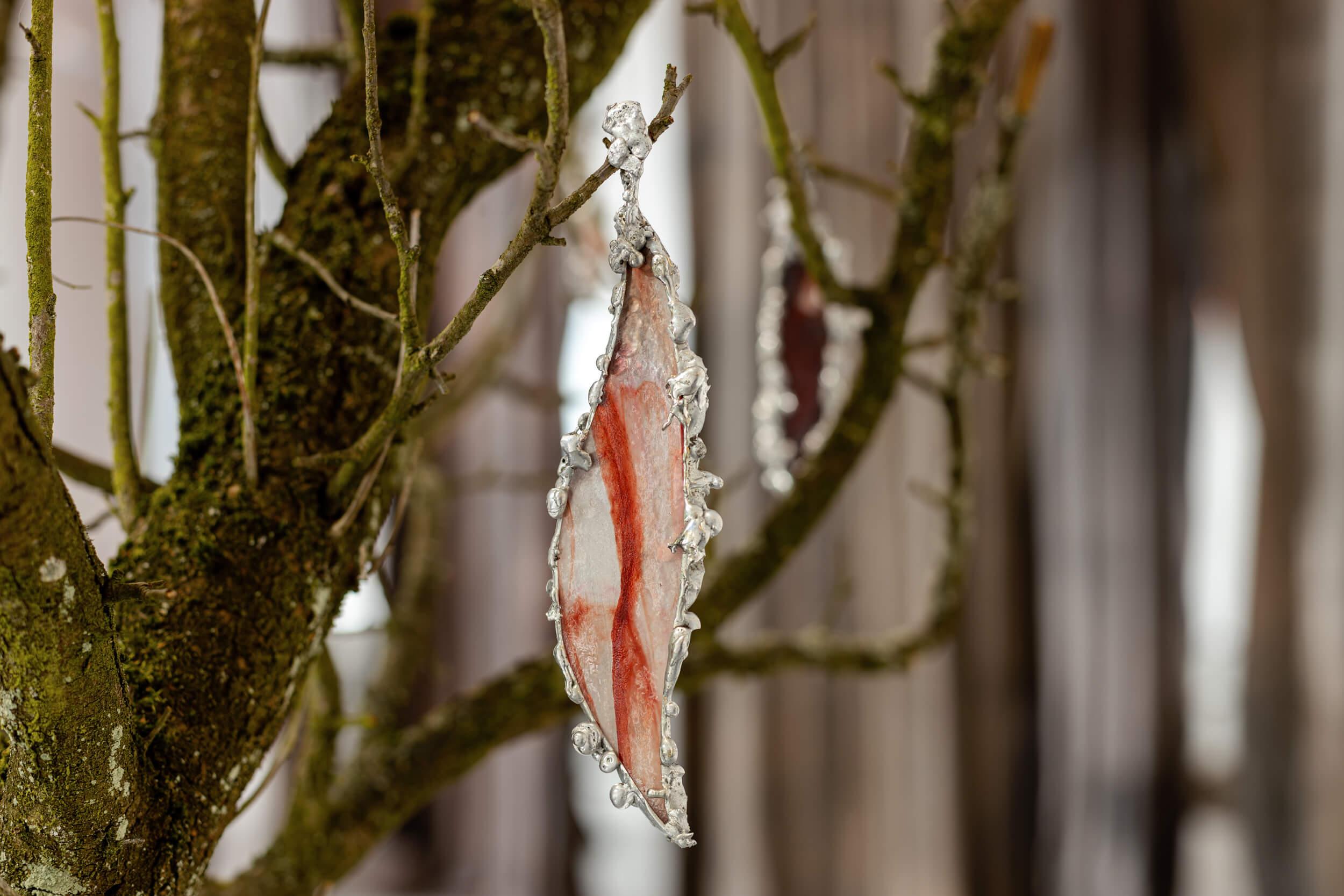
The Poisoned Tree / detail
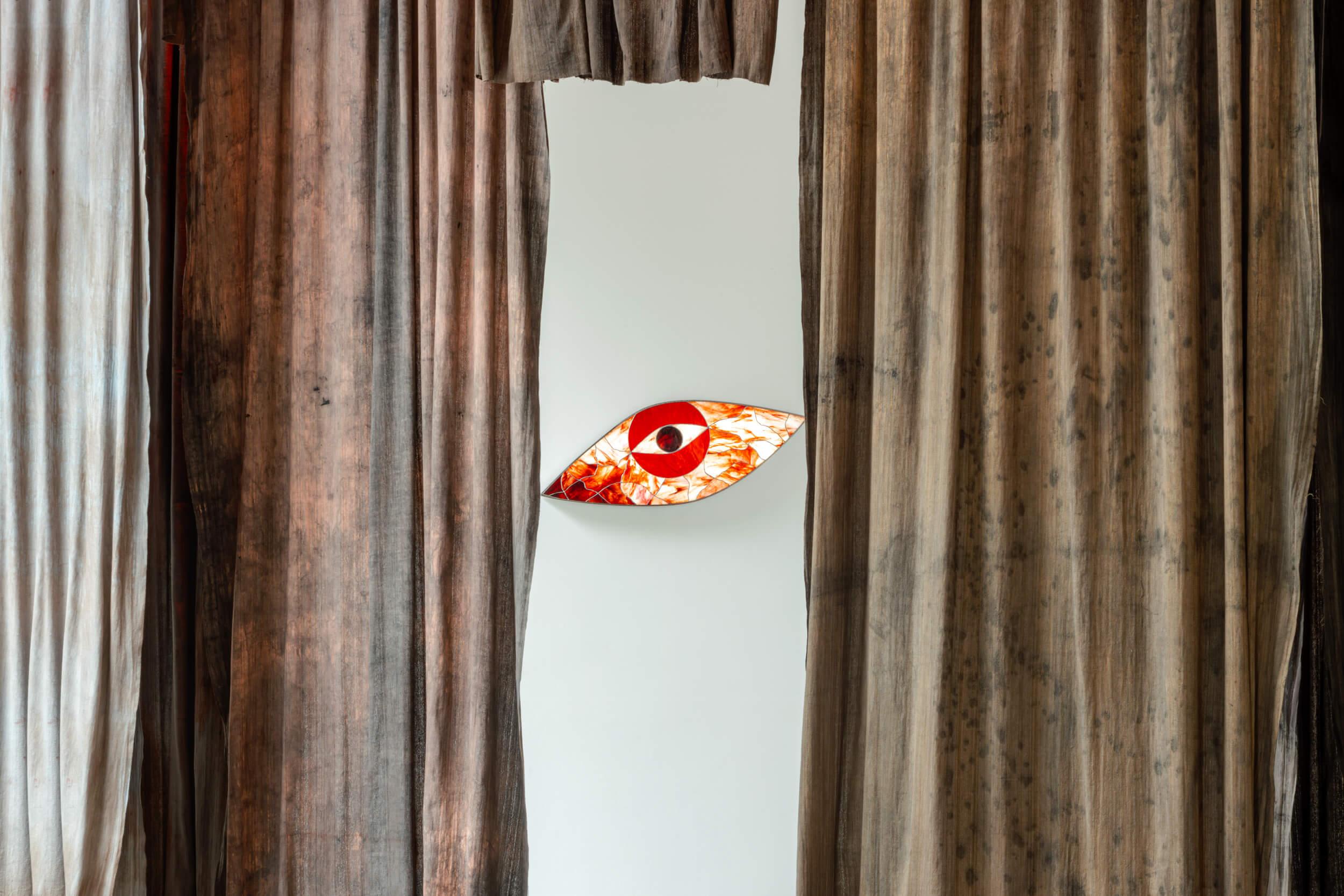
exhibition view
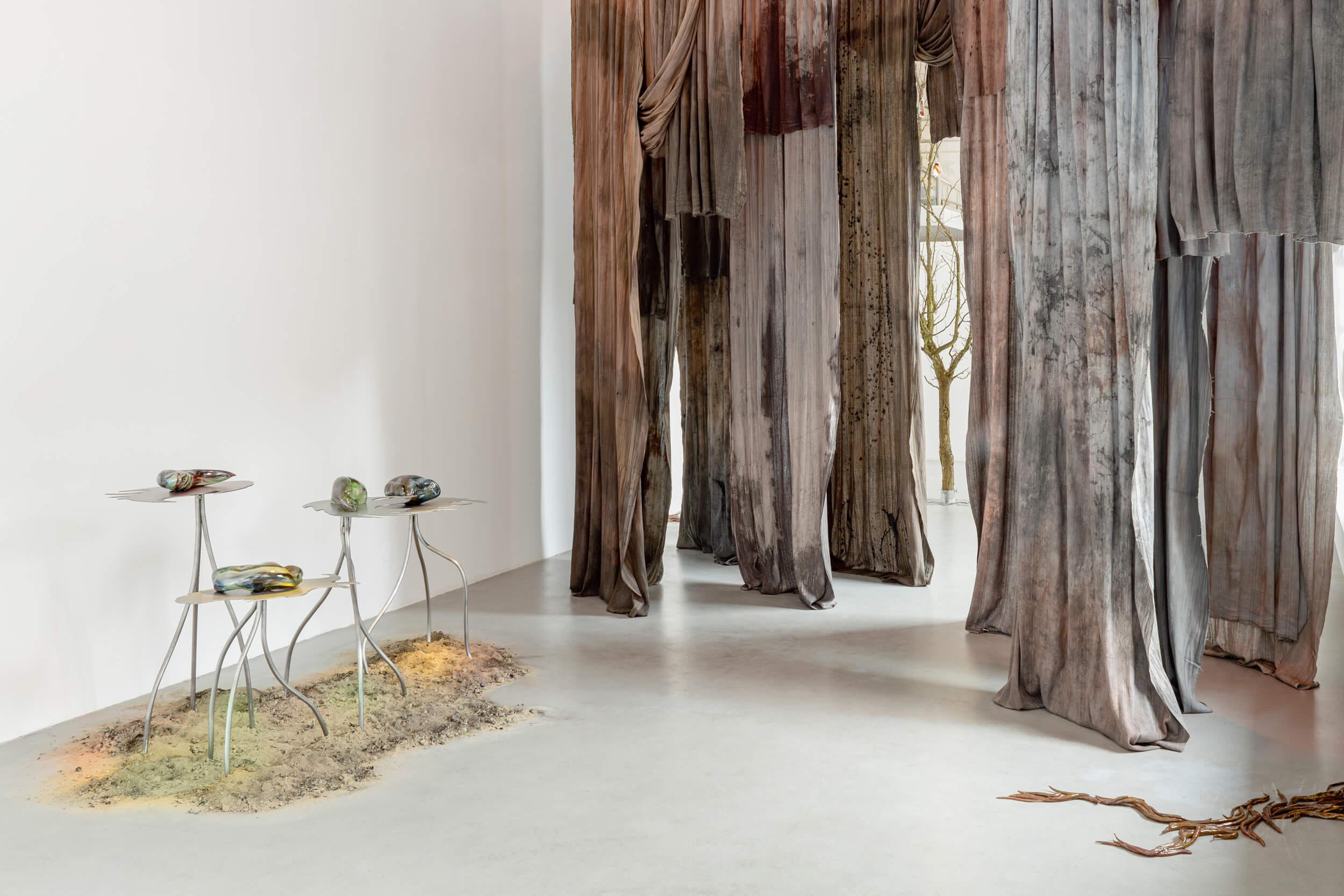
exhibition view
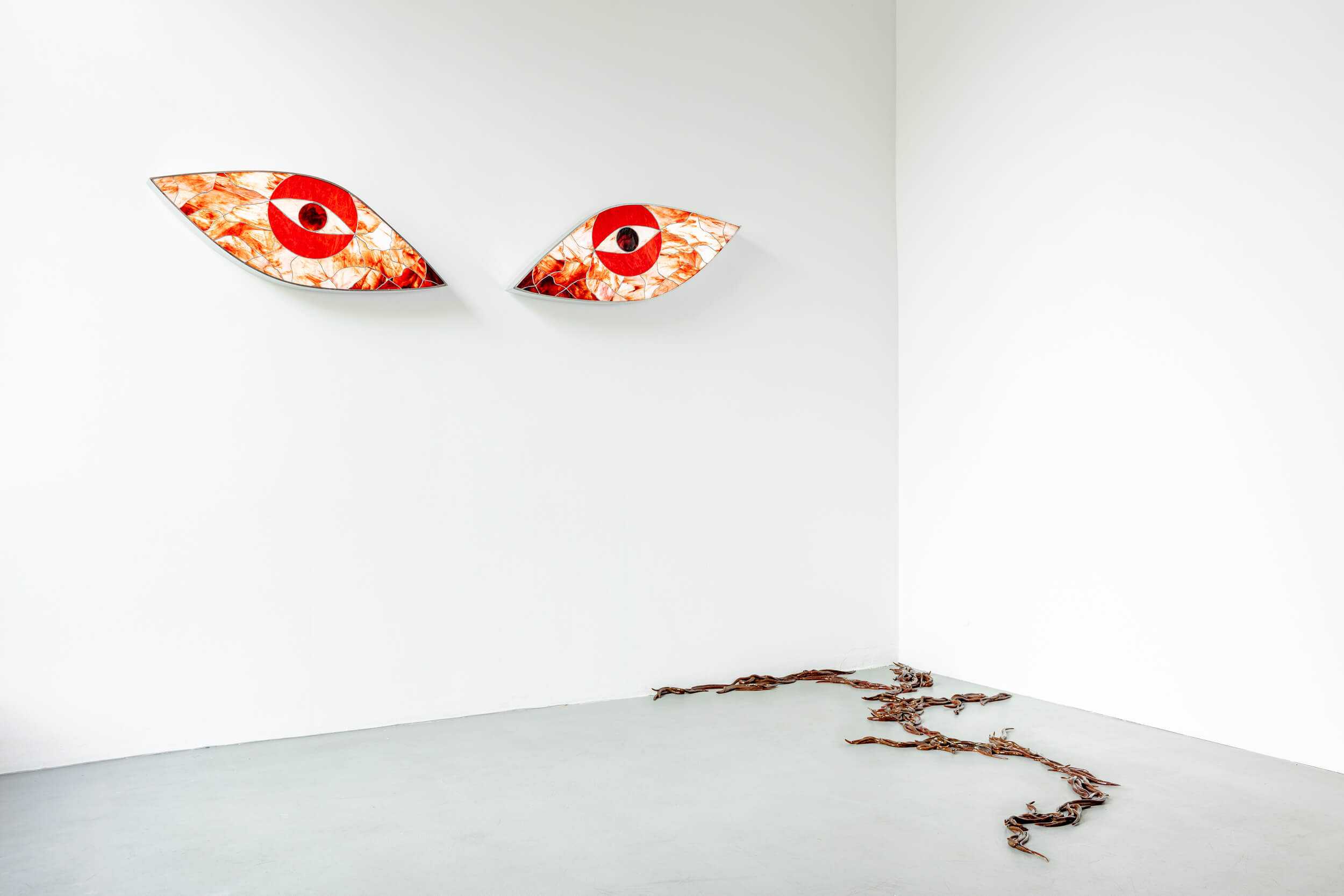
Evil Eyes / stained-glass, 2024
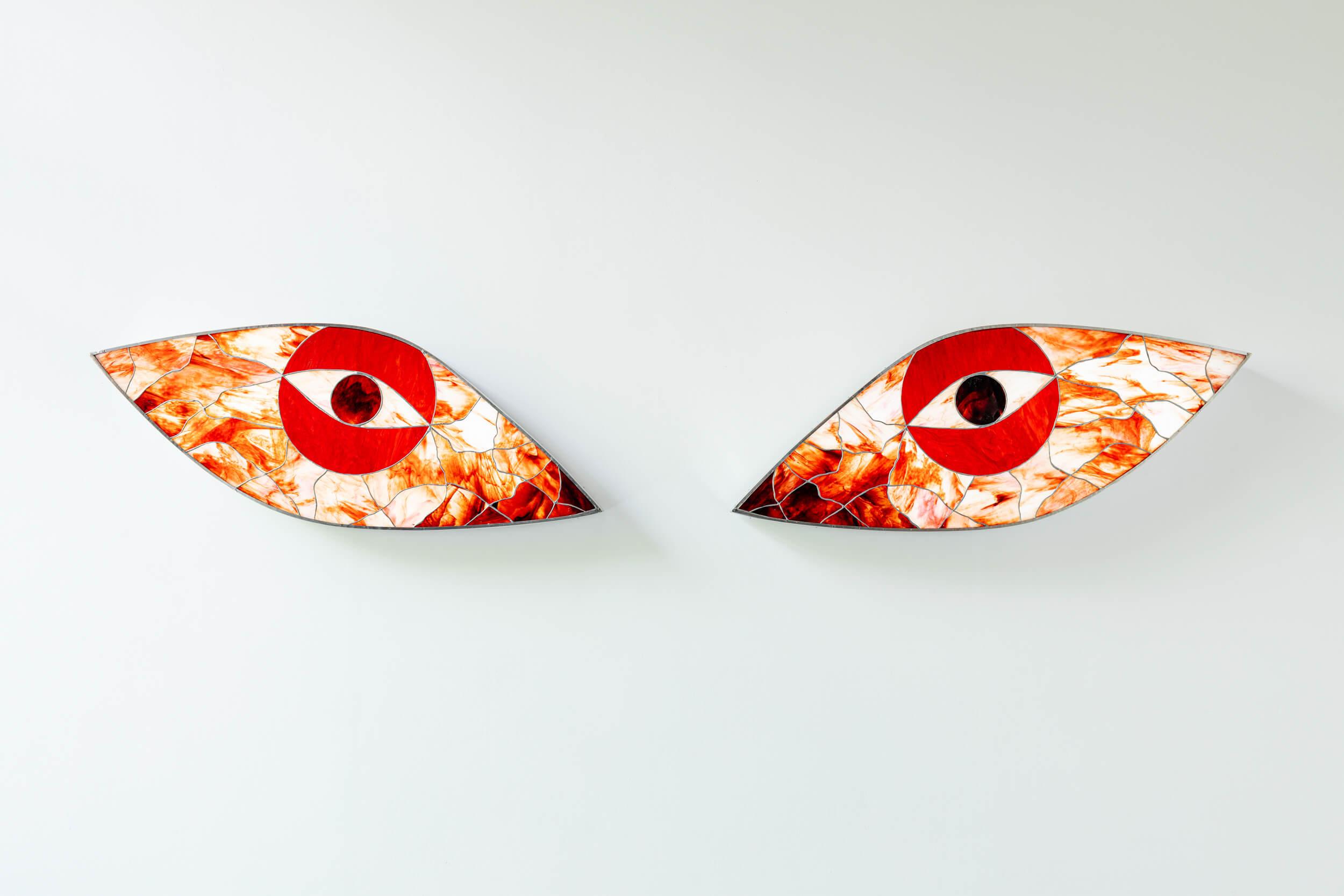
Evil Eyes / stained-glass, 2024
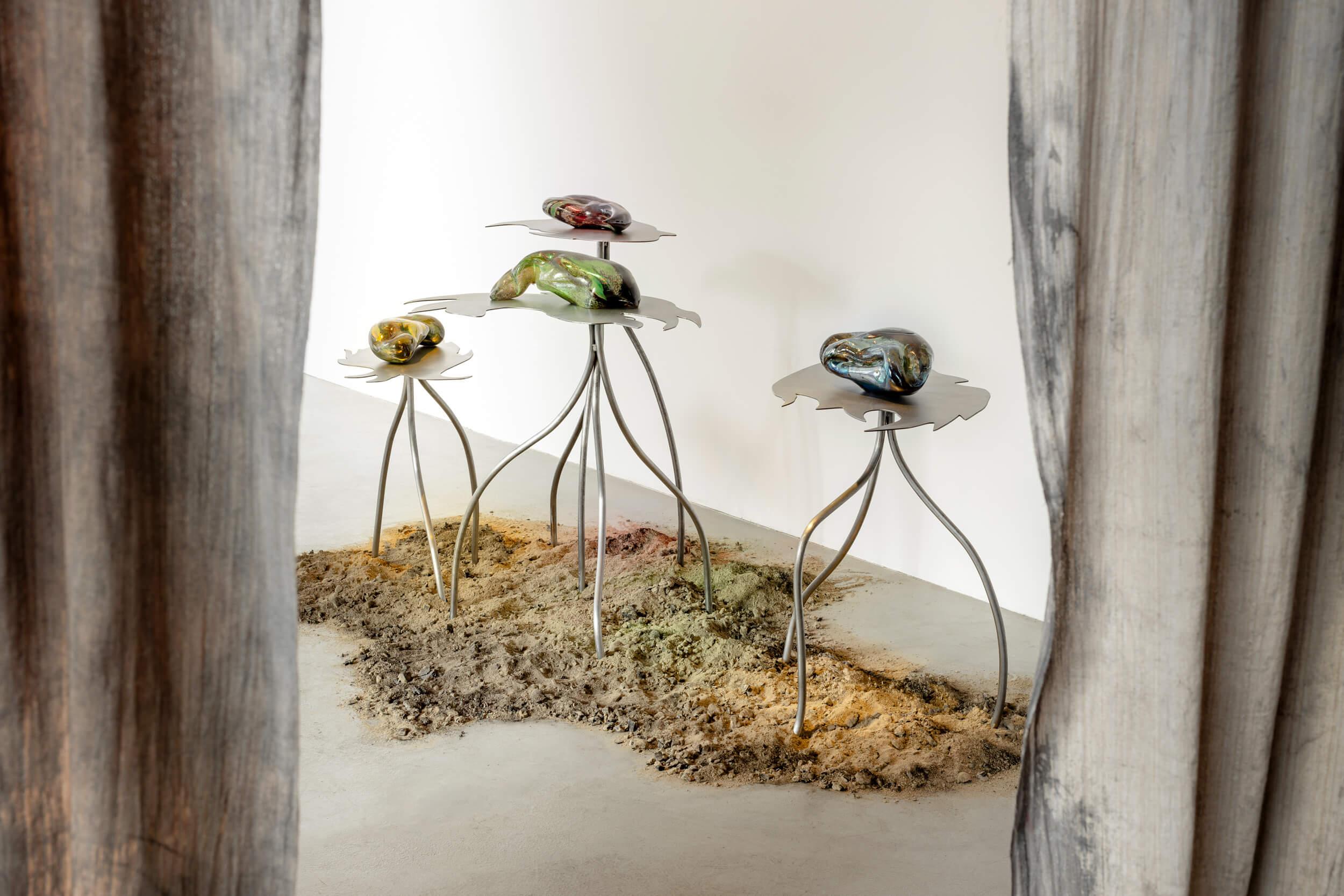
Four Humors / polished steel, glass produced through a hot process, 2024
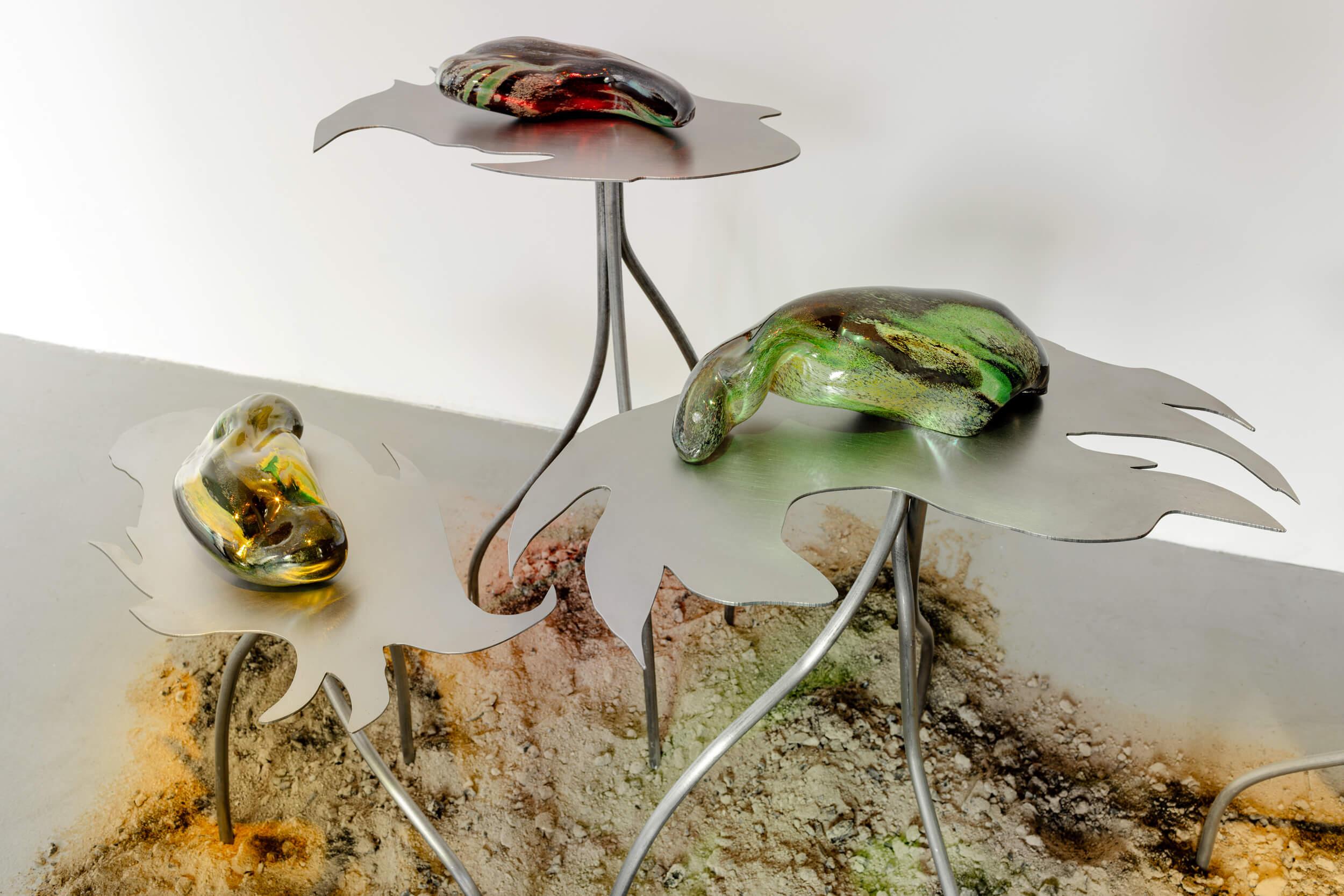
Four Humors / polished steel, glass produced through a hot process, 2024
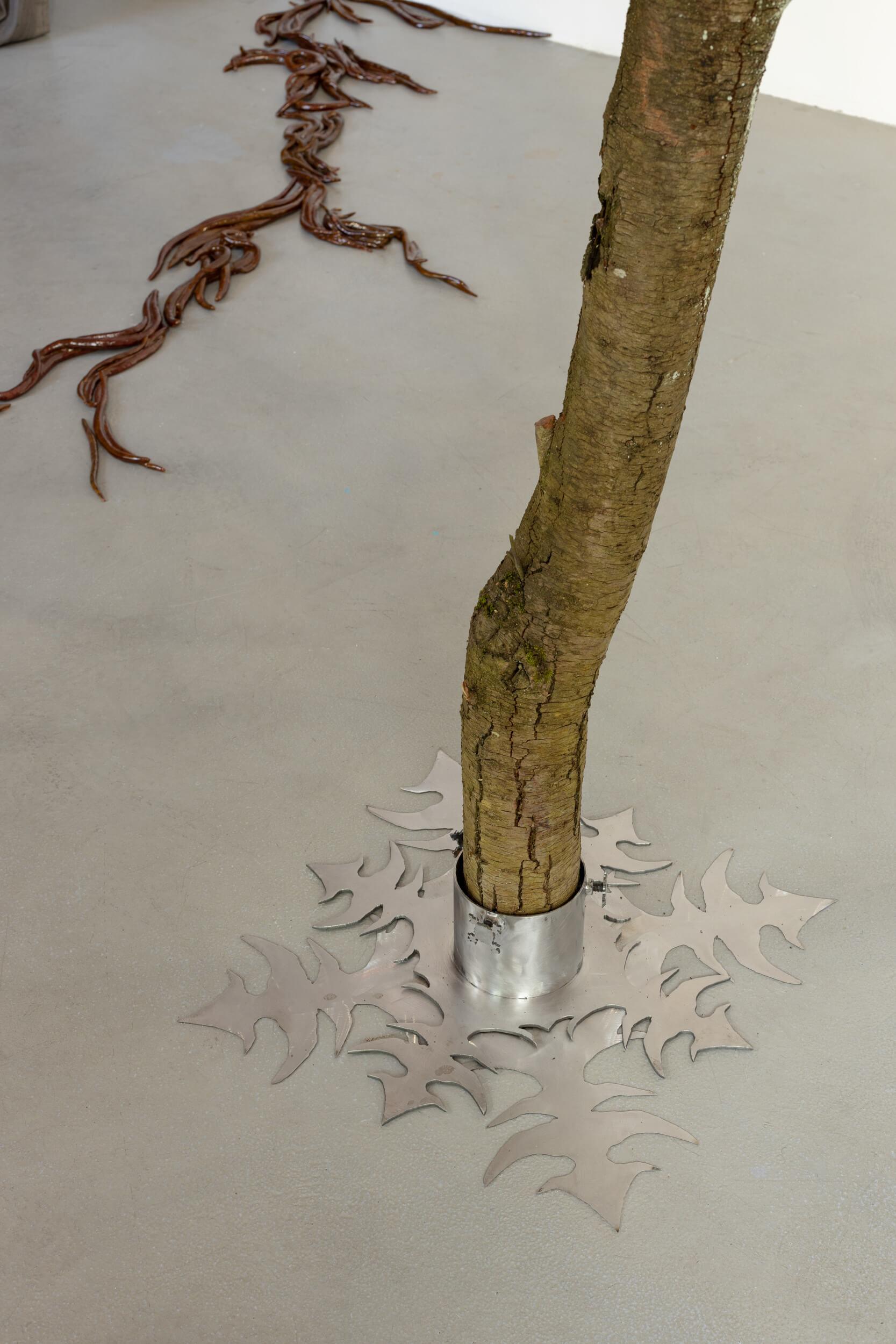
The Poisoned Tree / detail
Heartworm is also the title of a work consisting of approximately 300 ceramic objects crawling across the floor of the gallery in Kościuszko Square. The exhibition addresses the theme of illness in ancient folk beliefs and juxtaposes it with how illness is perceived in contemporary times.
Charming eyes hidden in a stained-glass window peek out at us from behind a thick curtain resembling a huge, unwashed bandage. As we enter further into the exhibition, the atmosphere becomes oppressive, unsettling and surreal. We see an ailing, weeping tree with a disease grafted onto it. Apparently, the disease was driven out of a human being and the tree was carried to the gallery by “evil winds”… Worm-like ceramic organisms are slithering out of the corners of the gallery, and the only “medical instruments” are brooms made of birch twigs. This is Aleksandra Liput’s darkest exhibition.
Heartworm, an exhibition that was specially created for SIC! Gallery, presents seven sculptures and bas-reliefs by Aleksandra Liput made of ceramics, glass, fabrics and wood. Each piece is a metaphor for magical rituals connected with Slavic folk medicine. Firmly rooted in Liput’s visual language, the works are unsettling symbols that the artist evokes from superstitions remembered from her childhood. In her earlier works, the artist concentrated on painting. Over time, ceramics replaced painting as the artist began to seek inspiration in nature. Presently, Liput imitates nature through art, emphasizing its importance and its role in ancient superstitions and rituals. She also finds inspiration in the supernatural.
The exhibition explores the theme of illness and evokes fear by hiding behind a white hospital curtain, making it difficult for people to find the language and space to talk about it directly. Through these intensely visual works, the artist draws attention to how human defense mechanisms and beliefs concerning health have changed over time. Illness used to be perceived as something that comes from the outside world – something over which we have no or very limited control. It was believed that most ailments were caused by evil spells or animals, especially worms that infiltrated people’s bodies and caused plagues to break out. The exhibition’s title is a perfect example of this – “a heartworm is moving inside me” is a metaphor for nausea, originating from southern Hungary.
In the present day, the moral right to be ill is held by those who strictly adhere to established rules. It is rarely said that a person’s state of health and ability to take care of it are closely linked to their economic, social or geopolitical status. In the end, “our health is in our hands,” as the old Polish saying goes… For Aleksandra Liput, it is important to remove responsibility from the ill person and free them from the burden of guilt and accusations of having been negligent towards their own body.
The somber and oppressive aspect of Aleksandra Liput’s art is emphasized by cold light and a special exhibition design. In the program of events accompanying the exhibition, we will further explore the themes of folk medicine and superstitions recalled by the artist from her childhood.
BWA Wrocław Galleries Of Contemporary Art




